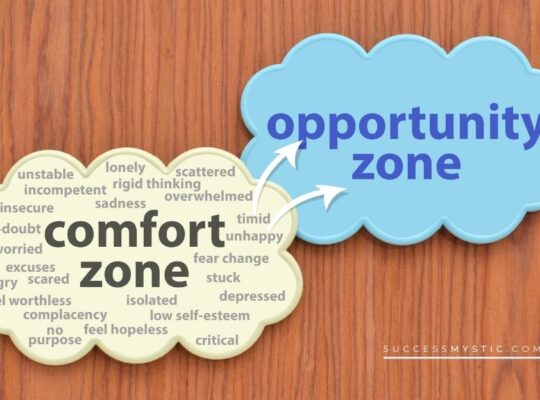Everyone has the same 24 hours per day to get tasks accomplished. Even with this fact in mind, it seems that some people are able to get so much more done than others! If you struggle to get your tasks accomplished in a timely fashion, you aren’t alone – many people struggle with poor time management skills.
Poor time management can lead to a lot of personal issues. Similarly, to other bad habits, when poor time management is allowed to continue without any changes to behavior or intervention, the negative effects it produces can begin to reverberate throughout your life and cause multiple issues.
Fortunately, it is possible to learn time management skills and correct bad habits that lead to wasting time. Struggling with poor time management doesn’t have to be a permanent part of your life.
With some practice, lifestyle changes, and time, you can learn to manage your time like a champ. To begin developing a better grasp on time management, it’s important to understand what poor time management skills look like and how those skills can harbor negative consequences.
What Is Time Management
Time management is a person’s ability to balance their time in a way that allows them to complete jobs and tasks in a timely and efficient manner.
A person who has good time management skills is able to meet deadlines, finish tasks on a to-do list, and accomplish goals in a way that doesn’t leave them feeling rushed or unsuccessful at the end of the day. A person with good time management is not only able to get their tasks done, but they’re also able to do them correctly.
When a person employs good time management, they have enough time to finish what needs to be done in a way that leaves them time to properly care for themselves. Rather than sacrificing their personal time, meal breaks, or relaxation opportunities to catch up on tasks that didn’t get done, a person with good time management skills finds a good balance between being productive and taking good care of themselves.
A strong sense of time management falls under the “work smarter, not harder” mentality. When a person can divide their time wisely and complete tasks in a way that is sensical, organized, and productive, they can accomplish a lot of quality work in an adequate amount of time.
Rather than feeling rushed and unfinished, someone who manages their time well manages to get the job done in a way that leaves their mind, body, and spirit in good shape afterward.
What are some consequences of having poor time management skills?
Poor time management skills come with quite a few negative consequences. The effects of managing your time poorly tend to snowball over time, meaning the consequences of having poor time management tend to become more severe the longer they’re allowed to continue.
For example, if you allow poor time management tendencies to continue, you may begin to notice a few negative effects:
1| You miss important deadlines and dates.
When you aren’t managing time well, many opportunities, deadlines, and other important events slip through the cracks. By mismanaging time, it’s easy to completely forget something you needed to do or should have attended.
2| You develop a poor reputation for being unreliable.
People with poor time management skills usually end up disappointing others. If you’re consistently missing deadlines, not completing tasks, and not having enough time to do a job correctly, other people will begin to take notice. After a while, people will begin to trust you less and less with responsibilities because they see that you don’t manage your time well and tend to be unreliable.
3| You produce lower quality work.
A lack of time management often leads to folks rushing last-minute to get a task finished. Even though you may get a task completed on time, you only met the deadline by rushing through it.
This type of speedy work often results in a sloppy product. Rather than producing a top-notch, quality result, poor time management skills often lead to a poorly executed job and a lackluster product instead of your best efforts.
4| You cause a lot of extra stress and anxiety on yourself.
Mismanaging your time is rough on yourself. When you constantly try to juggle your time (and fail to do so well), it creates a lot of extra stress and anxiety on your mind, body, and spirit.
The thought of leaving a project unfinished, a friend disappointed, or a job undone increases your anxiety levels tremendously – when you’re already struggling to balance your time, knowing that you’re missing important deadlines makes the feelings even worse.
5| You tend to have a hard time telling other people “no.”
A common trait among folks who are bad at time management is an inability to tell someone else “no.” For example, if a coworker asks you to help them finish their project, you may immediately agree to assist them….even though you already have two major projects of your own that need completing!
People with poor time management skills mean well when they agree to help a friend or donate their time to someone else’s needs, but ultimately, not setting boundaries for their time is a sign that they’re bad at managing it.
6| You may notice your personal life suffering.
Poor time management often leads to big responsibilities and jobs stacking on top of each other until the idea of completing them feels nearly impossible. When you find yourself confronted with such a massive workload of tasks needing to be finished, you may find it hard to enjoy your personal life.
When these tasks accumulate and your time is poorly managed, it usually spills over into your personal life. Instead of having time to spend with your friends, your romantic partner, or your family, you may find yourself stuck at work trying to finish your tasks. Instead of indulging in a fun hobby you enjoy, you may find yourself tackling a long to-do list of errands.
Friends and loved ones may begin to feel you’re ignoring them in favor of your work, but in reality, you’re suffering from poor time management.
7| You find yourself having to re-do tasks and pay for sloppy mistakes.
As mentioned in #3, poor time management often leads to sloppy work that is far less than what you’re capable of producing. Besides making you look bad, these kinds of time management issues can begin to eat into your resources.
For example, a rushed task may require you to re-do the task entirely, which may cost you extra in cash or other supplies. If this means you’re having to spend more of your own money, time, and/or resources to revisit the task again when it could have been tackled correctly on the first try, your poor time management skills are costing you!
8| You struggle to focus and tend to procrastinate.
People with poor time management skills spend a lot of time feeling overwhelmed. When a person feels overwhelmed, a common way the mind tries to manage that difficult feeling is to shut down completely.
Rather than getting anything accomplished, the mind decides it’s done, leaving the person procrastinating on their tasks and struggling to focus on what needs their attention most!
9| You have a hard time focusing on your big goals and dreams.
When you struggle to manage your time, it’s tough to keep your mind focused on your “big picture” or “ultimate why.” When it feels like you’re drowning in your own to-do list, it’s tough to keep your mind focused on your goals and dreams.
Struggling to get through your daily life removes your focus from what your life could be and what you could accomplish – instead, you find yourself too consumed in your daily to-do list.
Case Study: What Does Poor Time Management Look Like?
In this case study example, consider Miguel. Miguel struggles to manage his time wisely and finds himself struggling in several areas of his life because of it.
Miguel works at a large sales company that processes a lot of data. Miguel’s specific job requires him to create large databases of the data into organized spreadsheets that are easily searchable. Because of the size of the company, Miguel has a very large amount of data he needs to organize each week with lots of specific deadlines.
Miguel feels overwhelmed by the amount of work he needs to complete each week and struggles to prioritize his different assignments. Miguel misses a deadline at least twice per month – sometimes more. The consistently missed deadlines cause the company a lot of strain and his boss takes notice of each late assignment.
Worried about continuing to miss deadlines, Miguel decides to stay late a few nights per week to try and catch up his workload. After a while, a few nights per week turns into nearly every night per week.
Miguel’s girlfriend, Rose, is annoyed that he comes home late every evening – when this happens, they don’t get to eat dinner together or do anything else they enjoy as a couple because her work schedule conflicts with his late catch-up nights.
After spending so much extra time at work, Miguel is usually too tired to do anything except sleep or rest on the weekends. He used to play in a football league with some friends and go on fun dates with Rose, but now his friends and girlfriend don’t see him often at all on the weekends anymore.
In this scenario, Miguel’s poor time management skills touch multiple areas of his life in a negative way: His romantic life, social life, personal life, and work life are all affected because he can’t seem to manage his time wisely. As illustrated in Miguel’s example, when time management becomes a problem in one area of life, it’s not unusual for other areas of life to also become affected. While his poor time management skills begin as an issue in his professional life, other areas of his life begin to suffer as those struggles snowball and expand outward from his work environment.
Good Strategies For Improving Time Management Skills
Improving poor time management skills is possible. Like any other major life change, it involves some practice and time to perfect.
Because no two people are the same, strategies that work well for one person may not work as well for another – you may need to mix and match different strategies to find a combination that works well for your individual needs.
To get started, consider the following strategies to help improve poor time management skills:
1| Spend a few days keeping a detailed list of how you’re spending your time.
When a company notices a problem within one of its systems, it’s common for the company to perform an “audit” of that system to detect the root causes of the issue. During the audit, the company creates a detailed report of everything happening in that particular system so they can analyze it for errors or mistakes. You can use a similar auditing system to take a closer look at how you’re managing your time.
For a few days, keep a detailed list of everything you do and how you’re spending your time. Include each activity or task you do and how long you spend doing it. Your time audit should include everything, including errands, work tasks, social events, relaxation time, and sleeping.
At the end of a few days, examine your list – you will likely begin to notice patterns that are more discernible when written out on paper.
2| Give yourself a specific time limit to get a task finished – and stick to it.
Giving yourself a concrete amount of designated time is an excellent way to create consistency in completing tasks. For example, pretend you need to vacuum your carpets before your dinner guests come over later in the evening.
Even though you have other tasks to finish, give yourself thirty minutes to complete the vacuuming. Set a timer on your phone and start vacuuming as soon as the timer begins counting down.
During that designated thirty minutes, challenge yourself to get the task done without moving on to another job until your thirty minutes are finished.
3| Create a to-do list for your daily tasks.
Creating a to-do list is a tried-and-true method for improving time management skills. At the beginning of each day, write a list of everything you’d like to get accomplished. Keep your list on you throughout the day.
Often, when you have a lot to do, it’s easy to find yourself hyper focused or consumed with one or two of those list items – after a while, you realize you’ve forgotten to complete the other tasks on the list! Revisiting your list to mark off completed tasks not only gives you a feeling of accomplishment, but it also keeps your other tasks at the forefront of your mind so you don’t forget them as easily.
4| Break down large tasks into smaller ones.
Consider the tasks on your to-do list for the day. Do you have any big tasks that could be broken down into smaller, more manageable ones? If so, break down that big task into smaller pieces. This makes the overall task feel more manageable to complete.
An example of a big task is “cleaning the house.” Cleaning your house likely involves a lot of different smaller jobs – you may need to vacuum your carpeting, mop the kitchen and bathroom floors, wash a load of laundry, disinfect your countertops, and more.
Rather than adding “cleaning the house” to your to-do list, write out the individual tasks that are involved in cleaning the house. As you complete each of these smaller tasks, cross them off the list. This way, you don’t forget to complete any essential house cleaning tasks during the process.
5| Get into the habit of planning ahead.
Planning ahead is a great way to manage your time wisely. You can plan ahead in multiple ways so your time is managed well. For example, planning ahead may look like….
- Spending the last ten minutes of your workday cleaning your office space and preparing a to-do list for the next morning
- Taking time on Sunday to prepare healthy meals you can reheat quickly throughout the upcoming work week
- Dedicating a specific time slot each month to sit down, pay your bills, and organize your budget
- Creating a good bedtime routine that ensures you’re ready to relax and get a good night’s sleep each evening
…and many more! There are many ways you can plan ahead to ensure your future self will be able to manage time wisely.
6| Create routines that help you establish some predictability in your daily life.
Routines are magical things. With some good routines, you can truly automate some parts of your life to run like clockwork. When you know what to expect from your routines, you can ensure you’re managing your time well, taking care of yourself, and anticipating the future with more confidence.
For example, poor time management skills may leave you struggling to prepare a healthy and nutritious dinner after work each evening. If you make a routine for preparing your meals each week, you can depend on that routine to ensure you’ll always have food ready after work without having to rush around and waste your time.
For example, you may do your grocery shopping the Sunday prior so you can prepare enough food to last your whole work week – with this routine in place, you don’t have to worry about wasting time trying to scrape together a fast and nutritious meal.
7| Get comfortable telling other people “no” when you need to.
People with poor time management skills often let other people consume a lot of their time. While you may do this out of kindness or genuinely wanting to be helpful to another person, it can cause you to lose track of your own time!
If a person asks for your help doing something, and you really don’t have time to help them, practice saying “no.” When you tell the person you can’t help them, you’re setting a healthy boundary between your time and the other person.
While this may seem hurtful, it isn’t – when you do this, you’re accomplishing a few positive outcomes:
- You effectively communicate your feelings and needs to the other person
- You don’t put yourself in a situation where you don’t have enough time to finish your personal tasks
- You don’t put yourself in a situation where you may not be able to help the other person effectively
Telling someone “no” when you really don’t have enough time to help them is never selfish. Instead, you’re making a wise choice that will ultimately honor you both.
8| Make a point to tackle your tough tasks early in the day.
Do you have a task on your to-do list that’s going to be particularly challenging or unpleasant to tackle? If so, take care of that to-do list item first!
Prioritizing difficult tasks by completing them first thing in the morning offers a couple benefits. Firstly, when you handle that rough task early, it’s completed sooner so you can move on to other, less challenging tasks.
Secondly, people tend to have more energy and motivation early in the day versus later in the afternoon – take advantage of that early momentum by knocking out those big challenges bright and early.
9| When possible, delegate tasks.
Learning how to delegate is a valuable time management skill. Often, people find themselves caught up in tasks that could be passed along to someone else. Supervisors and managers often find themselves handling smaller tasks that a subordinate could complete, but even if your time management issues aren’t work-related, you can still use delegation to help manage your time smarter.
For example, instead of trying to do all your errands yourself, find ways to make the tasks easier by outsourcing some of the work. For example, a fantastic service of the 21st Century is curbside pickup – ordering your groceries and goods online and picking them up from the store’s parking lot saves you the trouble of going through the whole store, finding each item, and waiting in line to pay.
10| Get rid of the “half focused” mentality.
In a world of constant distractions, it’s easy to only give a particular task part of your focus. For example, if you need to finish a homework assignment, it’s tempting to stop every few sentences to browse on your phone.
When you sit down to complete a task, practice eliminating anything that might cause you to fall into a half-focused mentality. Leave your cell phone in another room, turn off the TV show you’re trying to watch in the background, and complete your task alone if the company of others is too distracting.
Make an effort to give all your attention to the task at hand until it is completed. Over time, it will become easier to stop glancing at your phone or reaching for the TV remote!
11| Remember to schedule time to take breaks and relax throughout the day.
When you’re jumping from task to task, you may feel like you’re being your most productive self. Unfortunately, this method tends to have the opposite effect on most people!
When you task-hop without giving yourself a break, you don’t give yourself an opportunity to clear your mind between each distinct item on your to-do list. For example, if you run out of a meeting just to enter a conference call with different people, you aren’t giving your mind a chance to process what just happened during your meeting.
At the end of the day, you’ll find yourself feeling exhausted! Instead, schedule yourself some time to sit quietly, browse on your phone, or just relax between big tasks so you can have a moment to refresh yourself before moving forward with your to-do list.
12| Approach your to-do list with a “less is better” mentality.
This suggestion may seem counterproductive – if you have a lot to do, how is doing less going to make the situation better?
Many people are familiar with the popular phrase “less is more,” meaning that when you have less or do less, the results are more meaningful than if you tried to overdo the task. In the world of good time management, think of “less is more” as “less is better” instead.
When you attempt to tackle less tasks during the day, you aren’t necessarily falling behind or leaving things incomplete. Instead, you’re focusing more energy and effort into fewer tasks at one time.
For example, instead of trying to cram ten tasks into one workday, try prioritizing three or four of those tasks into your day instead. Determine what can wait for later and do those tasks at another time. At the end of the workday, you’ll likely discover that you were able to finish those three or four tasks with great success because you had time and energy to really focus on them.
The Bottom Line
Having poor time management skills can cause a lot of issues in many different areas of your life. Fortunately, it’s possible to learn strategies that can help you manage your time in a more productive and effective way.
Like any other bad habit, reversing poor time management tendences takes a lot of time, practice, and experimentation to determine which strategies work best for you, but the payout is extremely valuable. With enough practice and effort, you can learn to manage your time wisely and tackle your to-do lists with confidence and ease.







